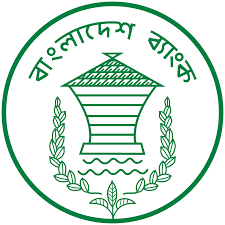Monetary policy remains unchanged

Fear of inflationary pressure, rising commodity prices in the international market and the government's spending spree on mega projects have restrained the central bank from bringing any changes to the monetary policy.
The Bangladesh Bank's monetary policy for the first half of the fiscal year has kept the private sector credit growth target unchanged at 16.80 percent.
The new target of private sector credit growth is sufficient to achieve the GDP growth of 7.8 percent this fiscal year, Bangladesh Bank Governor Fazle Kabir told reporters at a press conference yesterday during the unveiling of the new monetary policy.
The central bank governor hoped that the private sector would get its expected finance from the banking source as the government has a low demand for bank borrowing.
Analysts, however, said the latest policy might not contain the inflationary pressure as the government would have to import in bulk to implement its mega projects this fiscal year.
The import payment registered a 25.5 percent growth in the first 11 months of fiscal 2017-18 from a year earlier.
The annual average inflation went up to 5.78 percent in fiscal 2017-18 compared to 5.44 percent a year ago, mainly because of higher import payments for capital goods and food items, according to the latest policy.
The government had set the inflation target at 5.5 percent for last fiscal year and 5.6 percent for the current year.
Higher imports have also put pressure on the country's trade and current account balance, which has contributed to the depreciation of the local currency against the dollar, Kabir said.
The country' trade and current account deficit stood at $17.22 billion and $9.38 billion respectively in the first 11 months of last fiscal year -- both record highs.
The BB, the National Board of Revenue and the commerce ministry will need to take up coordinated monitoring to avoid the import of needless and luxurious products, he added.
The new monetary policy has not addressed the challenges prevailing in the economy, said Salehuddin Ahmed, a former BB governor.
He fears the new policy is not robust enough to curb inflationary pressures as the import bill will escalate more in the coming days ahead of the national election.
The government will try to implement a number of mega projects within this year, which will push up the import cost, he said.
“The latest policy has just changed some of its targets -- it does not specify how to solve the ongoing crisis in the foreign exchange market.” The central bank should have increased the private sector credit growth in a bid to help the small and medium entrepreneurs, Salehuddin said.
The slight tightening of monetary stances announced by the central bank is appropriate under the current macroeconomic environment, said Ahsan H Mansur, executive director of the Policy Research Institute of Bangladesh.
“Inflation is currently under control, but there are indications that it may increase in future in the event of devaluation of taka, which is now under pressure.”
The current account will also face a large deficit this fiscal year because of higher import payments to implement the mega projects, he added.
